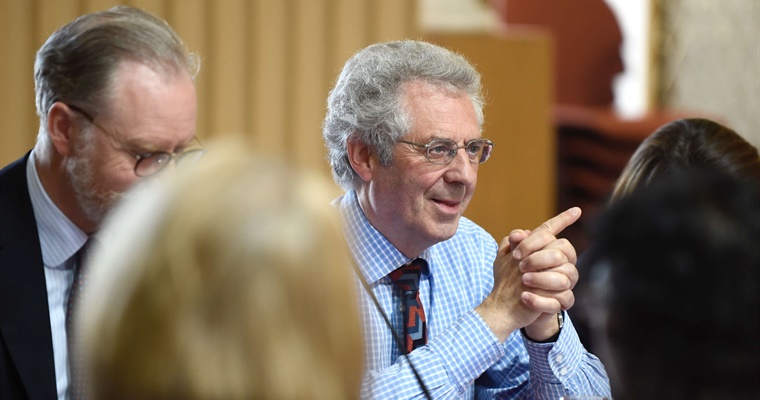Bill Moyes’ post-December Council blog

Last week saw the final Council meeting of 2018. As you may expect at this time of year, the Council were reflecting on what the GDC has achieved over the past 12 months. How have we promoted public protection? Is the system of dental professional regulation better now than a year ago? Is the GDC performing better than we were 12 months ago?
It is approaching two years since we published Shifting the balance, and 2018 has seen us achieve a great deal working in partnership to create a better and fairer system of dental regulation.
A key principle of Shifting the balance was to develop our approach to ‘upstream regulation’, which means working with others to prevent harm from occurring. Dental education is crucial to this, and in 2018 we improved our model of how we quality assure education and training programmes. Our new approach involves taking a more risk-based approach to where we place our inspection efforts, using evidence to target activity. This should benefit patients and dental professionals alike, by improving the standard of dental education.
In 2018 we have been piloting a programme of student engagement. This will be rolled out more widely in 2019. We want to engage with students to think early about their role as a regulated health professional, what it means to embed public safety and confidence in their work.
Shifting the balance also committed us to improving how concerns and complaints about dental care are resolved. To help achieve this, we have worked with 28 of our partners to improve the information available to patients about resolving complaints. This is based on six core principles of good complaints handling, which include all of patient feedback being important to professionals because feedback helps to improve patients’ experiences of dental services. We are now working towards having these principles displayed in every dental practice across the UK.
2018 has also seen the GDC improve our approach to enforcement activity. This has involved us introducing ‘case streaming’ where cases are grouped together by complexity, so they can be more effectively managed. Next year, we will examine what we mean by serious nature of ‘impaired fitness to practise’ and work to ensure that anything short of that is dealt with using alternative tools so patients to find the best mechanism for resolving their issue.
As well as delivering our vision for dental regulation set out in Shifting the balance, we have also worked to improve our effectiveness and efficiency. This have involved creating an operational hub in Birmingham where our registration function is now operating and where our operational staff will be based by the end of 2019.
With your input, 2018 has also see us change our approach to how we set the fees that we charge. Our new fees policy is based on the principles that fee levels should be primarily determined by the cost of regulating each professional group, that the method of calculating the fee should be clear and that decisions on how to set the level of fees should not lead to undesirable outcomes, such as unacceptably variable costs for those groups of registrants whose numbers are very small . The new fees policy will go live on 1 January 2019.
2019 will also see us proposing how we develop the next phase of reform to continuing professional development for the dental profession. We will be publishing a report on the evidence for future direction of the scheme shortly and you will be able to input your views into this when we consult in the summer.
The GDC is also improving how we use and share evidence and insight. A key source for this data will be our own Fitness to Practise process. We will share information about the types of cases that are being investigated and seek to provide insight that will support reflective practise.
Sharing insight from Fitness to Practise is only one piece of a much bigger jigsaw, which is fundamentally about improving our research, evidence and evaluation capacity and capability. We want to use this approach to underpin our work so that our policies and operational practises are evidence based and are being evaluated with the aim of continuous improvement.
While delivering all this change, we will also be changing how we work. We will be consulting on a three-year costed corporate strategy in the late spring, which, for the first time, will allow you to influence how resources are allocated across the activities that are involved in dental professional regulation.
Finally, I would like to say thank you. Thank you to the GDC’s staff who have worked tirelessly to deliver this ambitious improvement programme. Thank you to associates that work with the GDC to deliver much of our work. And thank you to you for helping to shape and deliver our improvement programme. The Council and I look forward to continuing to work with you in 2019.
 eGDC
eGDC

















